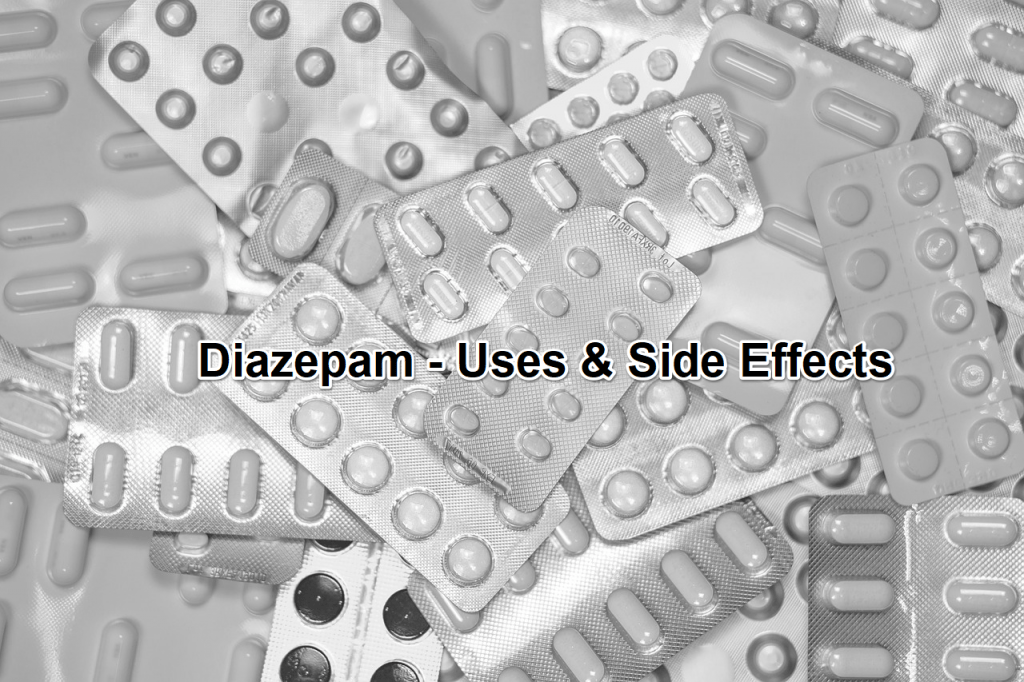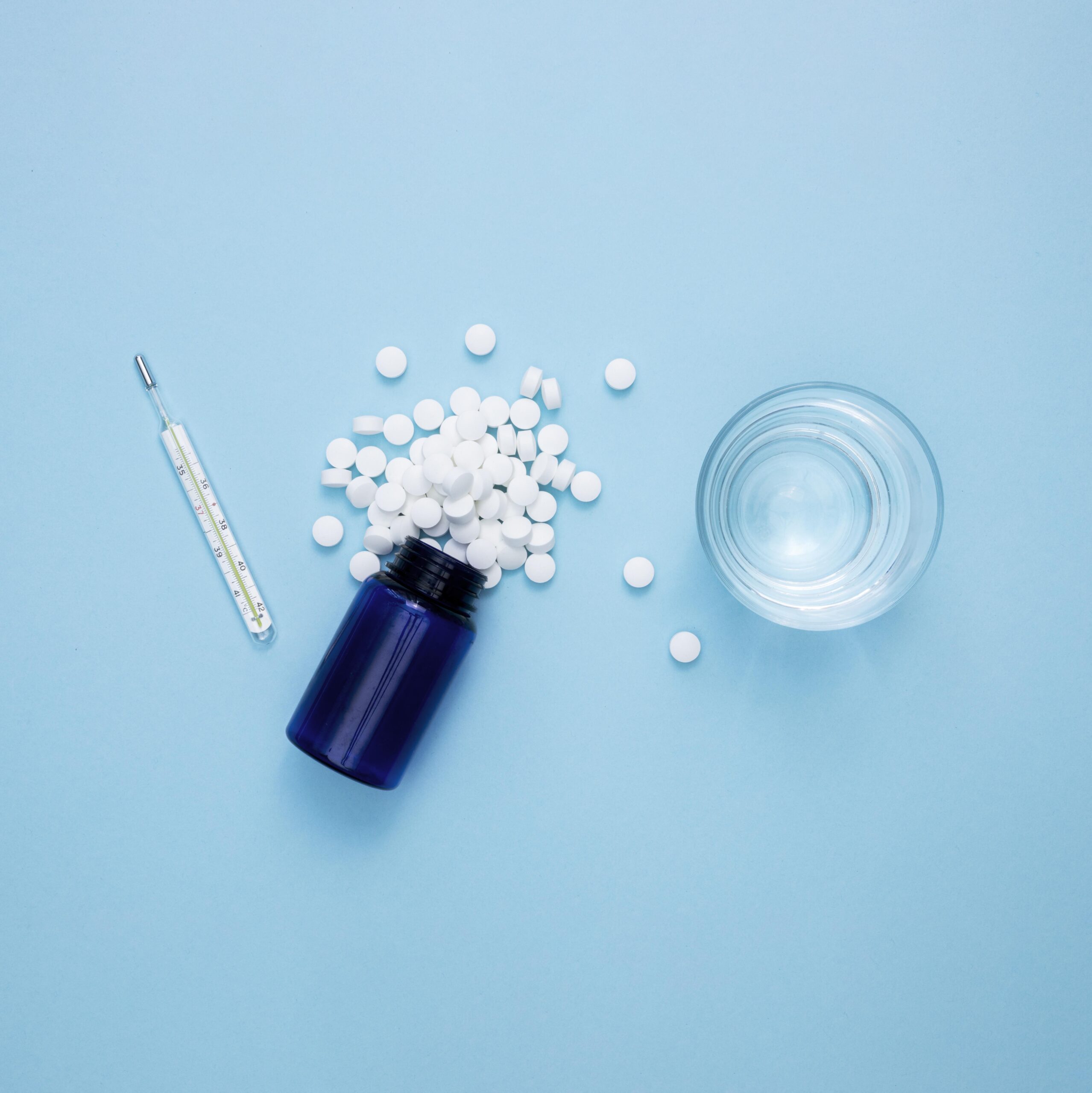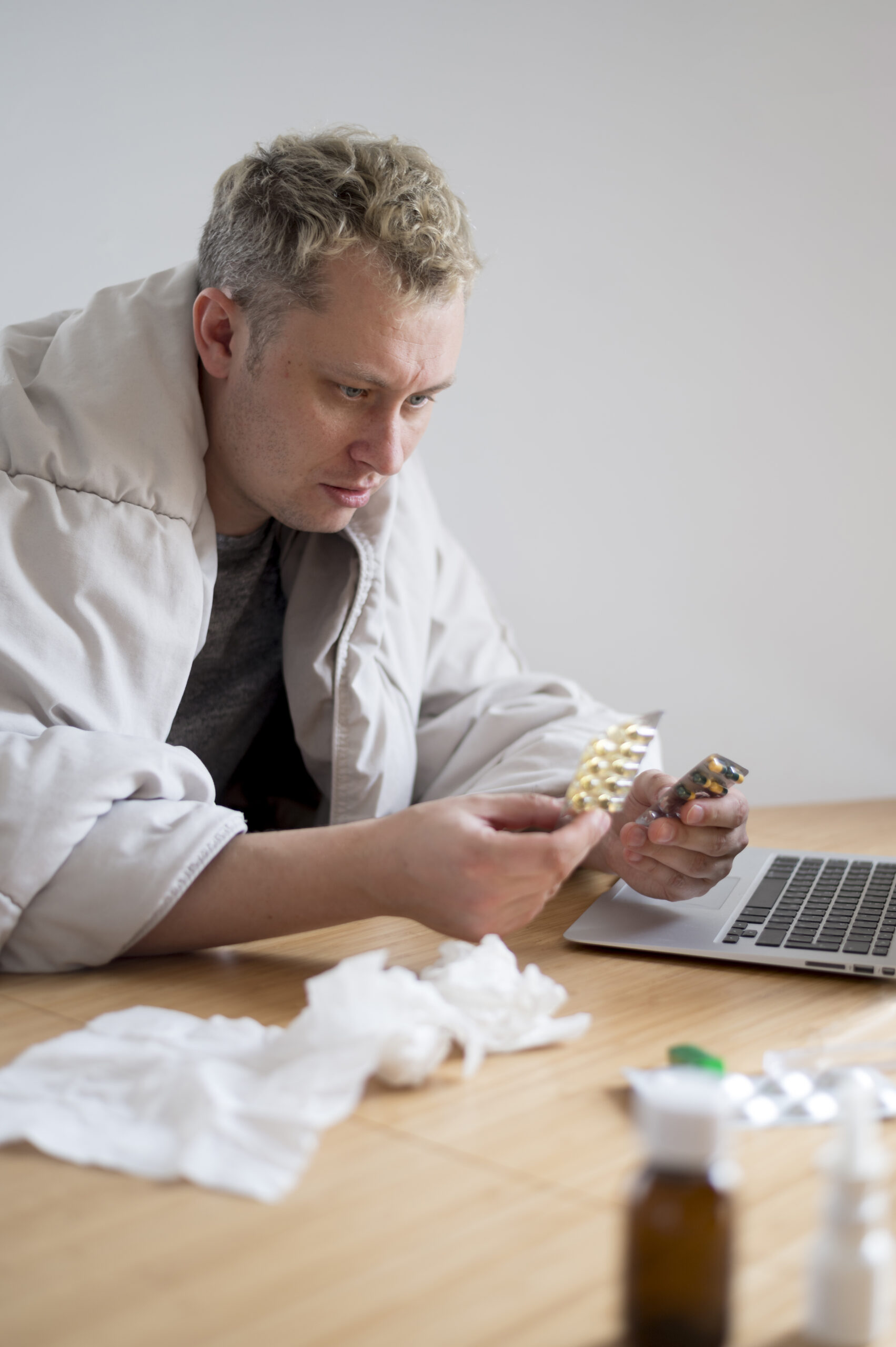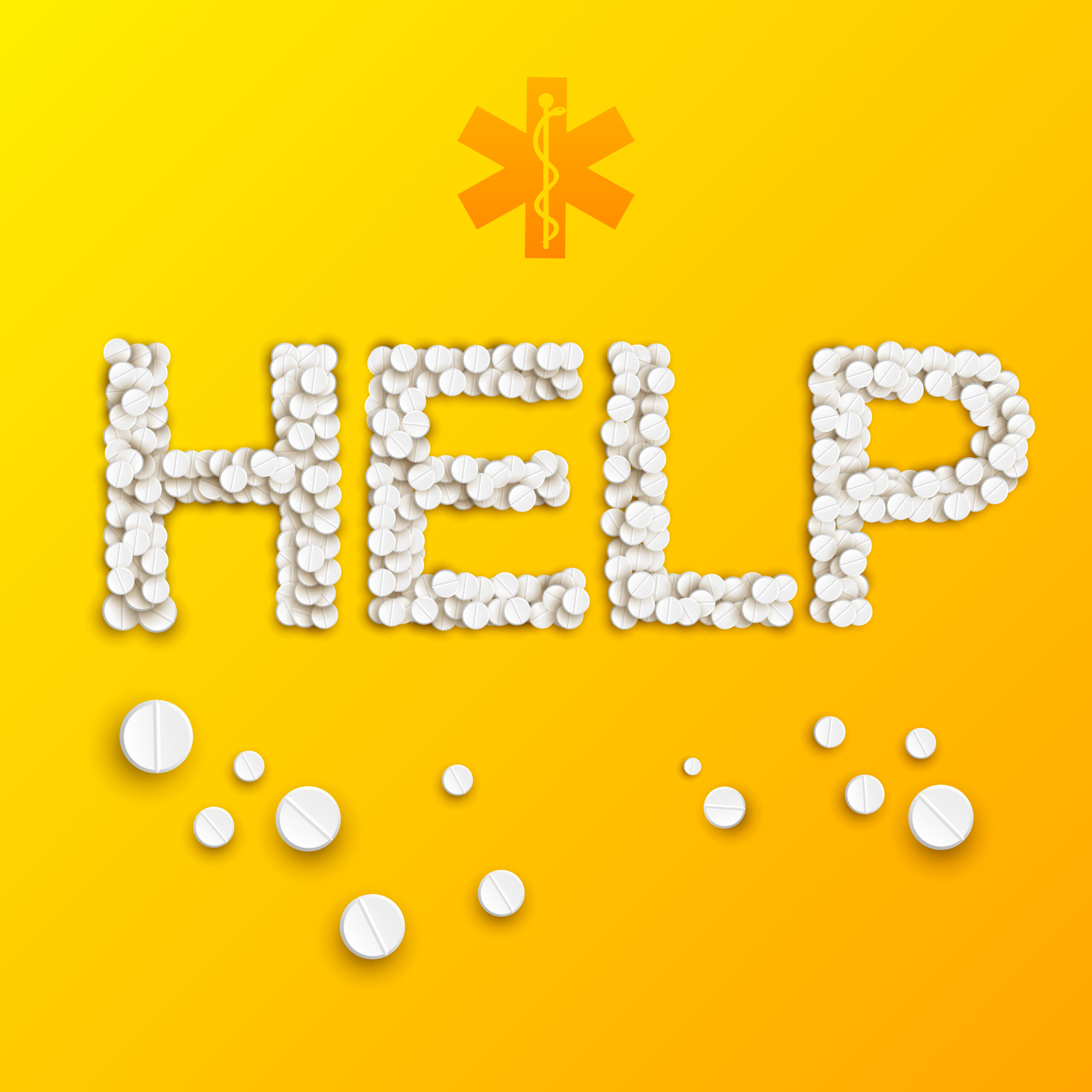Back To Top
What is Diazepam? Diazepam belongs to a class of medications called benzodiazepines. It works by increasing levels of the neurotransmitter gamma-aminobutyric acid (GABA) in the...

Diazepam belongs to a class of medications called benzodiazepines. It works by increasing levels of the neurotransmitter gamma-aminobutyric acid (GABA) in the brain, which promotes relaxation, sedation, and sleep. Diazepam is available in several forms: tablets, an oral solution, and injectable solutions (administered either intravenously or intramuscularly).

Diazepam is prescribed for various conditions including:
It is also used to manage conditions like depression, panic disorders, seizures, and insomnia.
Diazepam can cause both mild and severe side effects. Most mild side effects tend to subside as your body adjusts to the medication.
Mild side effects may include:
Severe side effects are rare but may include:
If any severe side effects occur, contact your healthcare provider immediately.
Elderly patients are more sensitive to diazepam Valium side effects, as the body processes medication more slowly with age. Common reactions include confusion, imbalance, and excessive sedation. It’s important to monitor diazepam side effects in elderly users closely, as even small doses may cause pronounced drowsiness or coordination problems.

Always take diazepam exactly as prescribed by your doctor. Avoid increasing the dose or taking it for longer than recommended, as this medication can be habit-forming. Diazepam should only be used by the person for whom it was prescribed.
Key guidelines:
There are several important precautions to take while using diazepam. Avoid the following to minimize risks:
Several medications can interact with diazepam, increasing the risk of side effects or reducing the effectiveness of the drug.
Common drug interactions include:
Always consult your healthcare provider before combining diazepam with other drugs.
 Diazepam is a medication commonly used to treat anxiety, seizures, and muscle spasms. However, its use during pregnancy is generally not recommended unless absolutely necessary. Diazepam can cross the placenta and may harm the developing fetus, especially in the first trimester. Potential risks include birth defects, low birth weight, and developmental delays. If you are pregnant or planning to become pregnant, it is crucial to consult with your healthcare provider before taking diazepam. Your doctor will weigh the potential benefits and risks to determine if an alternative treatment is safer.
Diazepam is a medication commonly used to treat anxiety, seizures, and muscle spasms. However, its use during pregnancy is generally not recommended unless absolutely necessary. Diazepam can cross the placenta and may harm the developing fetus, especially in the first trimester. Potential risks include birth defects, low birth weight, and developmental delays. If you are pregnant or planning to become pregnant, it is crucial to consult with your healthcare provider before taking diazepam. Your doctor will weigh the potential benefits and risks to determine if an alternative treatment is safer.
Diazepam can pass into breast milk, potentially affecting a nursing infant. While the amount of diazepam transferred through breast milk is generally low, it can still cause sedation, poor feeding, and developmental delays in newborns. For this reason, breastfeeding mothers should only use diazepam if the benefits outweigh the risks, and under strict medical supervision. If you need to take diazepam while breastfeeding, your doctor may recommend temporarily discontinuing breastfeeding or monitoring the infant closely for any adverse effects. Always discuss with your healthcare provider before using any medication while breastfeeding.
Diazepam should be stored in a cool, dry place, away from heat and moisture. Keep it in its original packaging and out of reach of children to prevent accidental ingestion. Do not store diazepam in the bathroom, as humidity can affect its potency. It is also important to follow the prescribed dosage and avoid taking more than directed. Misuse of diazepam can lead to dependence, overdose, or severe side effects. If you have unused or expired medication, dispose of it safely, following local guidelines, to prevent accidental exposure. Always check the expiration date and consult a healthcare provider for safe usage and disposal.
Diazepam may not be suitable for everyone. Do not take this medication if you:
If you have any of the following conditions, you may need special monitoring or adjustments in your diazepam dosage:
Always inform your doctor about any pre-existing health conditions before starting treatment with diazepam to ensure it is safe for your specific situation.
Stopping diazepam abruptly can lead to withdrawal symptoms, especially if you’ve been using it for a prolonged period or in high doses. Common withdrawal symptoms may include:
To avoid these symptoms, your doctor will typically recommend gradually tapering your dosage when it’s time to discontinue the medication.
When reducing your dose, some people may still experience mild diazepam withdrawal side effects, such as restlessness, sleep disturbances, or temporary anxiety. These diazepam withdrawal symptoms are part of the body’s adjustment to lower GABA activity after long-term use. To minimise discomfort and avoid side effects coming off diazepam, healthcare providers often suggest a gradual tapering schedule combined with relaxation techniques and medical supervision.
To safely dispose of diazepam, it is important to follow proper guidelines to prevent harm to others and the environment. Do not flush the medication down the toilet or throw it directly in the trash, as this can lead to contamination of water supplies or accidental ingestion. Instead, check with your local pharmacy or healthcare provider for a medication take-back program, where you can safely return unused or expired diazepam. If no such program is available, you can dispose of it in a household trash by first mixing it with an unappealing substance like dirt, coffee grounds, or cat litter, sealing it in a plastic bag, and then placing it in the trash. Always follow any specific disposal instructions provided by the medication’s packaging or your healthcare provider to ensure safe and proper disposal.
The diazepam 2 mg tablet is commonly prescribed for mild anxiety, temporary stress relief, or light muscle tension. It’s ideal for patients needing gentle calming effects without heavy sedation. Always take it under medical supervision to ensure proper results.
Doctors often recommend diazepam 2mg for managing mild anxiety or muscle stiffness that interferes with daily comfort. In some cases, it’s also prescribed for short-term sleep difficulties related to stress or nervous tension.
Diazepam is intended mainly for short-term use. The duration depends on the condition — anxiety treatments often last a few weeks, while diazepam dosage for muscle spasm may be shorter. Long-term therapy requires close medical monitoring to prevent dependency.
Yes, diazepam is used to treat pre-procedural anxiety and help patients relax before surgery or dental treatment. Its calming effect makes it a useful option for managing fear or tension associated with medical interventions.
Yes — Diazepam is what is known under the brand name Valium. Both contain the same active ingredient and have identical therapeutic effects, though availability and formulation may differ slightly depending on the manufacturer.
Yes, diazepam is used to treat moderate to severe alcohol withdrawal by easing agitation, tremors, and sleep problems during detoxification. The dosage and treatment plan are determined by a doctor to ensure safe symptom control.
| Cookie | Duration | Description |
|---|---|---|
| cookielawinfo-checkbox-analytics | 11 months | This cookie is set by GDPR Cookie Consent plugin. The cookie is used to store the user consent for the cookies in the category "Analytics". |
| cookielawinfo-checkbox-functional | 11 months | The cookie is set by GDPR cookie consent to record the user consent for the cookies in the category "Functional". |
| cookielawinfo-checkbox-necessary | 11 months | This cookie is set by GDPR Cookie Consent plugin. The cookies is used to store the user consent for the cookies in the category "Necessary". |
| cookielawinfo-checkbox-others | 11 months | This cookie is set by GDPR Cookie Consent plugin. The cookie is used to store the user consent for the cookies in the category "Other. |
| cookielawinfo-checkbox-performance | 11 months | This cookie is set by GDPR Cookie Consent plugin. The cookie is used to store the user consent for the cookies in the category "Performance". |
| viewed_cookie_policy | 11 months | The cookie is set by the GDPR Cookie Consent plugin and is used to store whether or not user has consented to the use of cookies. It does not store any personal data. |